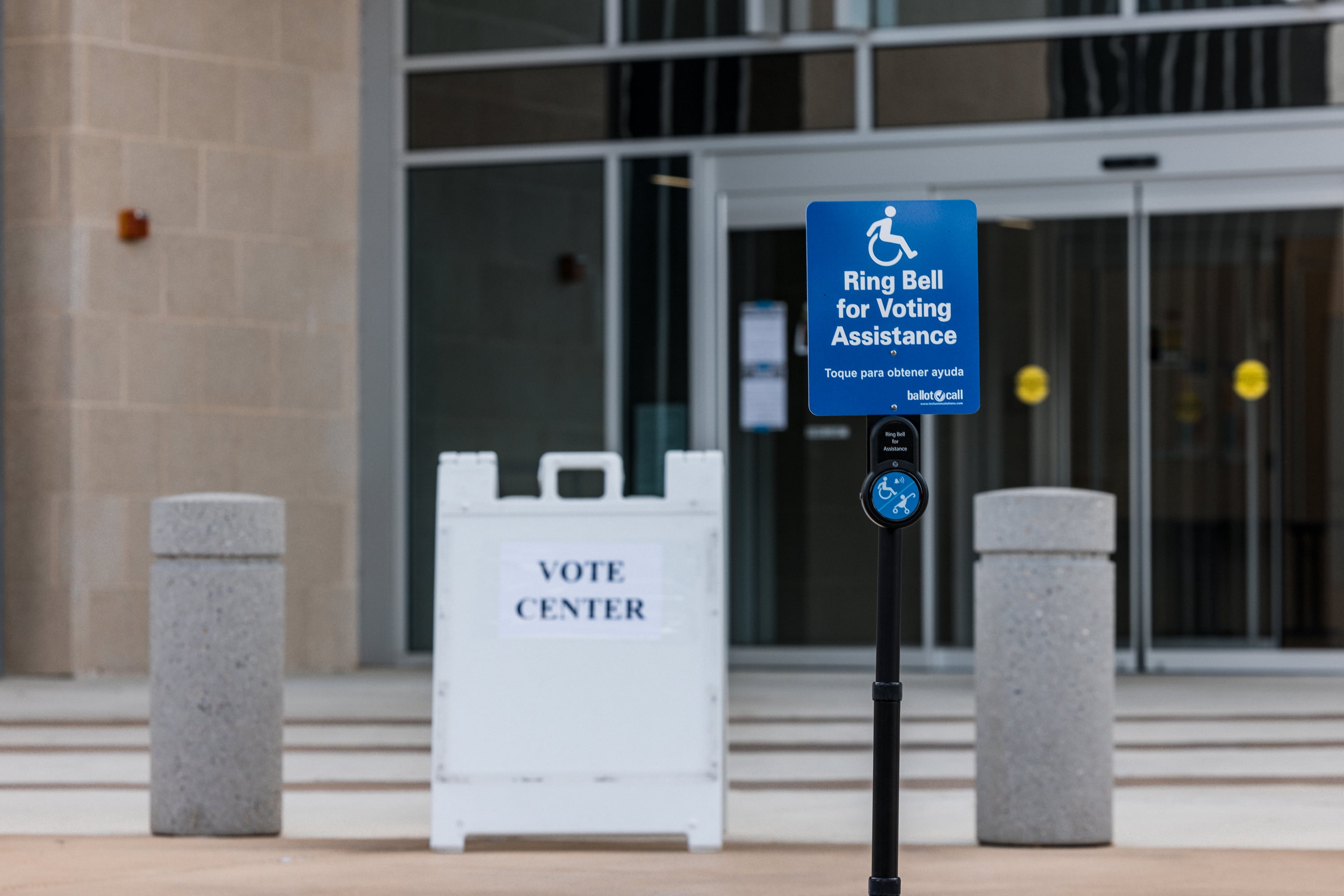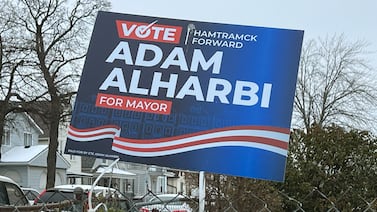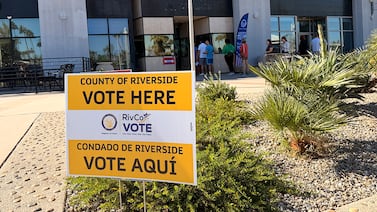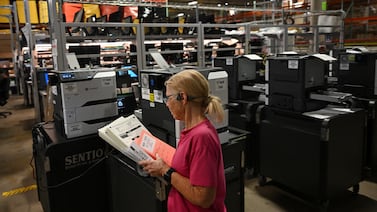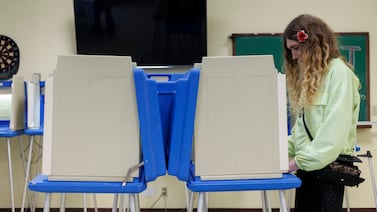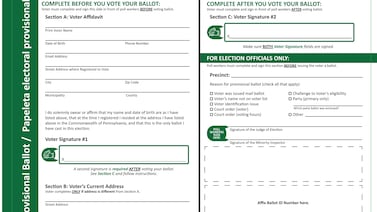Votebeat is a nonprofit news organization reporting on voting access and election administration across the U.S. Sign up for Votebeat Texas’ free newsletter here.
Certain provisions of Texas’ sweeping 2021 voting law that restrict voter assistance violate the federal Voting Rights Act and cannot be enforced, a federal judge in Texas ruled Friday.
Among the rules struck down by U.S. District Judge Xavier Rodriguez was a ban on compensation for anyone who assists a voter and a requirement for anyone who assists a voter to sign an oath under penalty of perjury that the voter qualifies to receive help.
Rodriguez also blocked provisions that require assisters to make certain disclosures about their relationship to the voter they are helping and a provision that restricts voter assistance given during door-to-door voter outreach operations.
Rodriguez based his decision on the section of the 1965 federal Voting Rights Act that guarantees voters with disabilities or literacy limitations the right to receive assistance from whoever they choose.
“This ruling will be most impactful for voters with disabilities, voters who have limited English proficiency, voters with literacy issues and the people who assist them,” said Sean Morales-Doyle, voting rights program director at the Brennan Center for Justice.
Although the judge has blocked any type of prosecution under these provisions, the rules and instructions on forms about requiring voter assisters from signing an oath are technically still in place for the upcoming Nov. 5 presidential election, because it is too close to the election to change the forms themselves.
“It’s a shame that we’re now going to go through yet another election where people continue to have their rights violated as a result of what the Texas Legislature did,” Morales-Doyle said. “But this is still a big win for voters in Texas.”
Last year, the state argued the provisions did not violate the Voting Rights Act and that it “permits state-law restrictions on who may serve as an assistor beyond the limitations provided in federal law.”
The sweeping voting law dubbed Senate Bill 1 — which changed how some Texans vote and how election officials administer elections — was championed by Texas Republican legislators in 2021. Its passage led to a dramatic fight with Texas Democratic lawmakers, who broke quorum in an attempt to prevent the law from moving forward. Democrats in Texas and nationwide accused Republicans of basing the new rules on unfounded claims of widespread voter fraud in the November 2020 election.
Soon after the bill was signed by Gov. Gregg Abbott, more than 20 state and national organizations filed suit, seeking to overturn the new law. The lawsuits were consolidated into this case. The groups claimed provisions of the new law violate federal statutes, including the Voting Rights Act, the Americans With Disabilities Act, the Rehabilitation Act, and the U.S. Constitution.
In his Friday ruling, Rodriguez laid out a few scenarios that would put voters at risk under the law’s voter assistance provisions:
“A man helps his blind wife of 20 years cast her ballot at the polls without first securing a representation from her that she is ‘eligible for assistance.’ Even if he completes her ballot according to her exact instructions, he faces up to two years in prison and a fine of up to $10,000,” he noted.
“While meeting with a client about his tax return, a staff member for a community organization that provides free income tax services agrees to help translate the man’s mail-in ballot,” Rodriguez wrote. “The client fills out his own ballot, with accurate translation assistance from the staff member. Even though the ballot reflects the client’s wishes, the staff member faces up to two years in prison, she and her employer may be fined up to $10,000, and the client’s ballot may not be counted.”
The two-month trial began in September 2023. Lawyers later presented closing arguments in February 2024.
Plaintiffs challenged dozens of provisions, including a ban on 24-hour and drive-through voting; a prohibition stopping election officials from distributing mail-in ballot applications to voters who did not request them and provisions that expand poll watchers’ access, among others. Rodriguez has yet to rule on the remainder of those. Phase two of the trial, over whether the law’s intent was to discriminate against voters of color, is still making its way through the courts, which won’t begin until Rodriguez rules on all the remaining challenges to the provisions of the law in its current phase.
Plaintiffs said these provisions of the law made it harder for voters of color, voters with disabilities, and voters who don’t speak English to cast ballots.
Additionally, plaintiffs said the law made it more difficult for some voting rights advocacy organizations, forcing them to divert resources away from other programs to expand voter education efforts.
For its part, the state claimed Senate Bill 1 was passed to resolve “irregularities during the 2020 election caused by the COVID-19 pandemic,” singling out the decision by Harris County, the state’s most populous, to offer drive-through voting, and several issues with Harris County’s election.
The list of plaintiffs includes several organizations advocating for Latino, Black, and Asian-American voters, including the League of United Latin American Citizens, or LULAC and OCA–Asian Pacific American Advocates, as well as groups advocating for voters with disabilities.
To support their claims, the parties relied on 52 witnesses during the trial including county election administrators from across the state, voters, lawmakers, representatives of the Texas secretary of state, and experts in political science and voting rights.
The judge had previously struck down other key provisions.
For example, the legislation created new requirements for Texans who qualify to vote by mail. They are now required to provide either a driver’s license number or the last four digits of their Social Security number on their absentee ballot application and the envelope used to return their completed ballot, whichever matches the number the state has in its voter registration file. Last year, Judge Rodriguez said that provision is illegal, though it remains in effect pending an appeal making its way through the courts.
Earlier this month, Rodriguez blocked a provision that effectively criminalized door-to-door canvassing for ballot initiatives.
Natalia Contreras covers election administration and voting access for Votebeat in partnership with the Texas Tribune. Contact Natalia at ncontreras@votebeat.org

